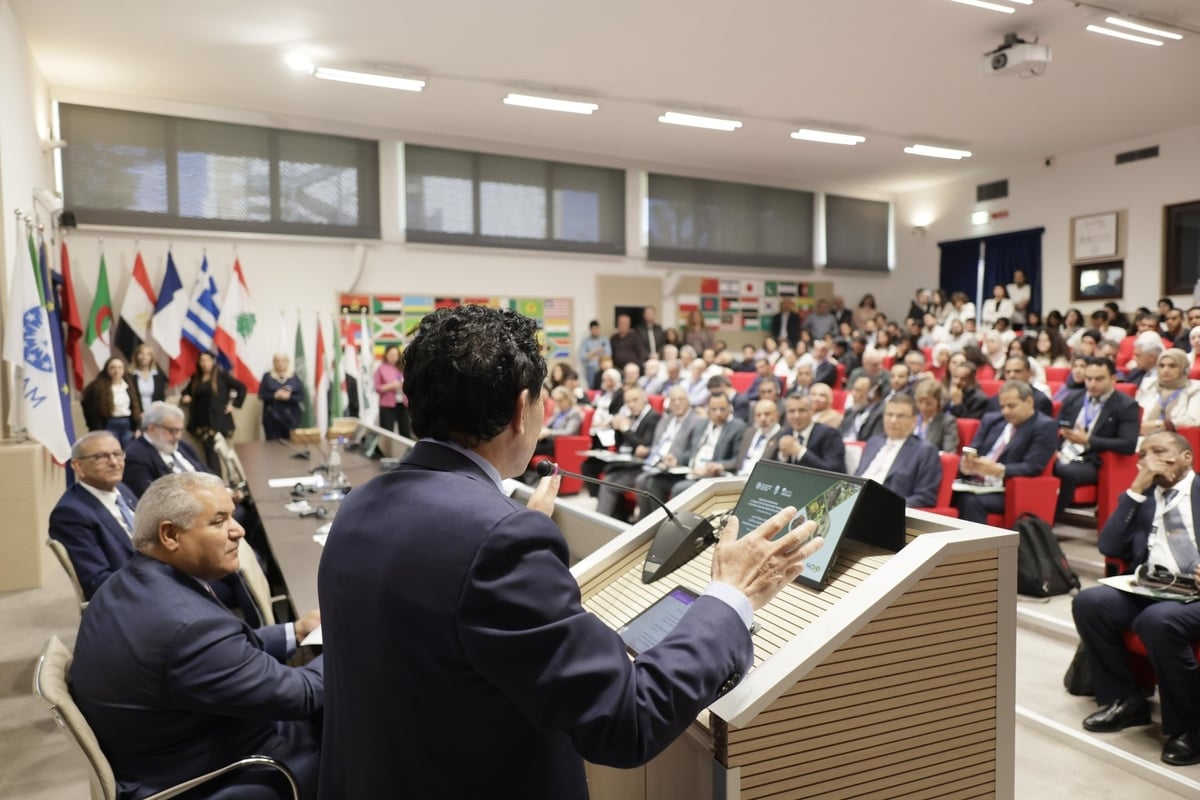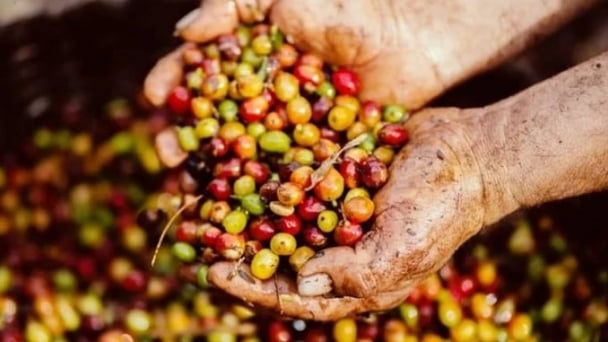June 17, 2025 | 23:57 GMT +7
June 17, 2025 | 23:57 GMT +7
Hotline: 0913.378.918
June 17, 2025 | 23:57 GMT +7
Hotline: 0913.378.918

The FAO Director-General told the conference in Bari that plant protection is fundamental for food diversity and for ensuring the right to food for all.
Cooperation at all levels, together with effective funding, are critical in the fight against transboundary pests and diseases (TPPDs), which each year destroy up to 40 percent of the world’s crops, Food and Agriculture Organization of the United Nations (FAO) Director-General QU Dongyu noted today as he marked the International Day of Plant Health.
Qu was invited to address government ministers from the Near East and North Africa (the NENA region) gathered for a conference in the southern Italian city of Bari.
The May 12-13 conference, which aims to rally support for the NENA Plant Health Strategy, was hosted by the International Centre for Advanced Mediterranean Agronomic Studies (CIHEAM), a Mediterranean intergovernmental organization established in 1962. CIHEAM, together with FAO and the Near East Plant Protection Organization (NEPPO), have developed a comprehensive Regional Strategy to address all concerns related to the TPPDs, focusing on strengthening coordination among member countries, improving pest management approaches, and capacity-building.
Plant protection is not only about safeguarding crops, “it is fundamental to preserving biodiversity, which is fundamental for food diversity and ensuring the right to food for all,” the FAO Director-General said, adding that “the right to food is a basic human right.”
The high-level attendance at the conference sent a clear message that plant health is critical for food security and nutrition, sustainable development, and resilience across the NENA region, and globally.
Migratory pests such as locusts and armyworms pose a significant threat to food security, trade, and livelihoods. It is estimated that up to 40 percent of global crop production is lost to plant pests and diseases each year, causing economic damage of more than USD 220 billion annually.
Such losses are particularly severe in the Near East and North Africa region, which is already vulnerable to the impacts of conflict and the climate crisis.
Algeria, Libya, Tunisia and other areas of Northwest Africa, for instance, are currently experiencing an invasion of desert locusts originating from the Sahel. A single swarm can cover several hundred square kilometres, with a single square kilometre of swarm containing up to 80 million adults. These pests can consume the same amount of food in one day as 35,000 people.
Since TPPDs know no borders, move fast and overpower national capacities, “no country can address these challenges alone,” Qu said. This is why “regional, and global, solidarity and cooperation are essential, partnerships are fundamental, and funding is critical,” he said.
FAO’s work on TPPDs
FAO promotes sustainable and ecological approaches to prevent and control the potential impact of TPPDs through continuous monitoring, early warning, and the promotion of innovative and environmentally friendly preventive control strategies.
Healthy plants are a cornerstone of FAO’s One Health approach, which recognizes that the health of people, animals, plants, and the environment are deeply interconnected.
They are also central to FAO’s Four Betters (Better Production, Better Nutrition, a Better Environment, and a Better Life- leaving no one behind), an organizing principle for the Organization’s work and the foundation of its Strategic Framework 2022-31.
(FAO)
![Turning wind and rain into action: [7] Early disaster warnings help marine farmers minimize losses](https://t.ex-cdn.com/nongnghiepmoitruong.vn/608w/files/news/2025/06/17/z6704423696987_15fd32ffc26d590d204d520c9dac6786-nongnghiep-142942.jpg)
(VAN) In recent years, thanks to early disaster warnings and forecasting, marine farmers in Khanh Hoa province have been able to reduce risks and losses, thereby improving production efficiency.
![Turning wind and rain into action: [6] ‘Four on-the-spot’ disaster management software](https://t.ex-cdn.com/nongnghiepmoitruong.vn/608w/files/news/2025/06/17/e5a48259d6a262fc3bb3-nongnghiep-183800.jpg)
(VAN) By simply activating the scenario on the disaster management software, the relevant authorities immediately know how many households need to be evacuated, where to evacuate them to, and by what means of transportation…
![Turning wind and rain into action: [5] Hue applies modern technology in disaster forecasting](https://t.ex-cdn.com/nongnghiepmoitruong.vn/608w/files/news/2025/06/17/z6704423696987_15fd32ffc26d590d204d520c9dac6786-nongnghiep-093938.jpg)
(VAN) In Hue city, modern technology has recently been applied in meteorological and hydrological forecasting and warning, helping to reduce the damage caused by natural disasters.

(VAN) A cutting-edge farming technique being implemented on an experimental ranch in Arizona's Sonoran Desert has already saved a billion gallons of water over five years, according to Civil Eats.

(VAN) Poultry and pig production and the environment can be boosted through enhanced water technology, according to new research.

(VAN) Coffee prices on June 16, 2025 are unchanged. In Vietnam, local trading prices are holding steady, ranging around VND 112,000 – VND 112,500/kg.
![Turning wind and rain into action: [4] Bringing climate bulletins to remote and isolated areas](https://t.ex-cdn.com/nongnghiepmoitruong.vn/608w/files/linhnhp/2025/06/14/1152-z6704423696987_15fd32ffc26d590d204d520c9dac6786-nongnghiep-151141.jpg)
(VAN) The Vietnam Agriculture and Nature Newspaper interviewed Mr. Vu Thai Truong, Acting Head of Climate Change and Environment at UNDP Vietnam, to gain deeper insight into how climate bulletins are delivered to farmers.